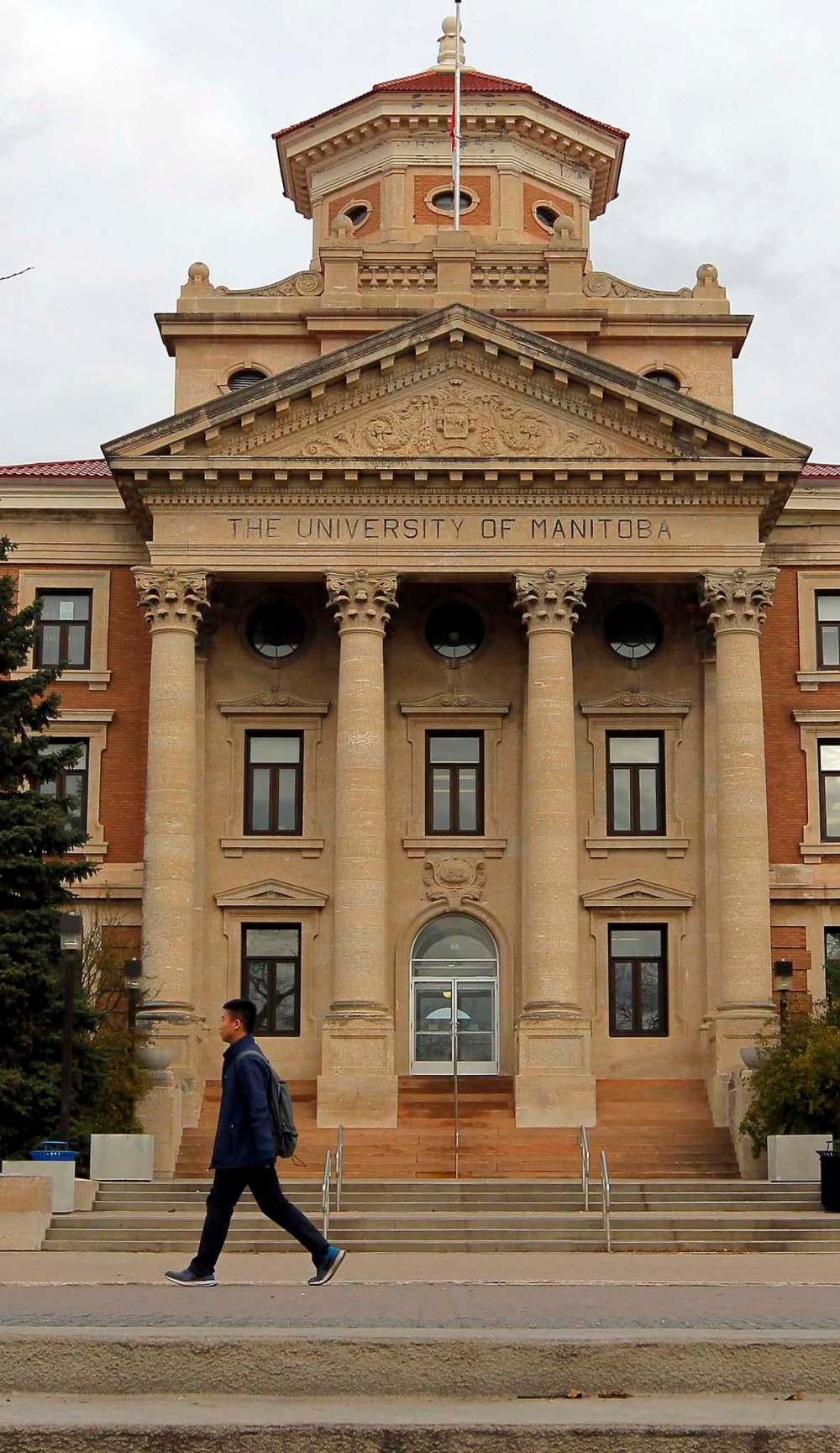U of M faculty vote on deal reached ‘under duress’
Advertisement
Read this article for free:
or
Already have an account? Log in here »
To continue reading, please subscribe:
Monthly Digital Subscription
$0 for the first 4 weeks*
- Enjoy unlimited reading on winnipegfreepress.com
- Read the E-Edition, our digital replica newspaper
- Access News Break, our award-winning app
- Play interactive puzzles
*No charge for 4 weeks then price increases to the regular rate of $19.00 plus GST every four weeks. Offer available to new and qualified returning subscribers only. Cancel any time.
Monthly Digital Subscription
$4.75/week*
- Enjoy unlimited reading on winnipegfreepress.com
- Read the E-Edition, our digital replica newspaper
- Access News Break, our award-winning app
- Play interactive puzzles
*Billed as $19 plus GST every four weeks. Cancel any time.
To continue reading, please subscribe:
Add Free Press access to your Brandon Sun subscription for only an additional
$1 for the first 4 weeks*
*Your next subscription payment will increase by $1.00 and you will be charged $16.99 plus GST for four weeks. After four weeks, your payment will increase to $23.99 plus GST every four weeks.
Read unlimited articles for free today:
or
Already have an account? Log in here »
Hey there, time traveller!
This article was published 07/09/2017 (3009 days ago), so information in it may no longer be current.
University of Manitoba professors are voting on a new collective bargaining agreement — with an unusual caveat that the deal was reached under duress and the courts could throw it out.
The U of M Faculty Association (UMFA) reached a tentative four-year deal with the university last week, but ratification voting continuing today specifies that acceptance includes recognition that Premier Brian Pallister’s wage-control Bill 28 imposed the deal on them.
The professors who check off the box to accept have been told on their ballots that their acceptance is conditional on Bill 28’s legality — if the courts declare it unconstitutional, all bets are off.

UMFA is telling its members: “If you vote ‘yes’ in this ratification vote, you are affirming that this settlement was bargained under duress, and you accept the settlement with the caveat that should (Bill 28) be declared unconstitutional by a court of law, the association has asserted its right to avail itself of whatever remedies such a court may order.”
The Tories have passed Bill 28, but have not proclaimed it. UMFA is among 25 labour unions which have filed a legal action to try to have the bill declared unconstitutional.
The U of M deal is significant not only because it is the first public-sector collective bargaining agreement reached under the provincial government’s wage-control Bill 28, but it also extends for a year beyond the terms of the bill.
Bill 28 imposes no wage increases or benefit improvements beyond zero in the first two years, 0.75 per cent in the third year and one per cent in the fourth year on the next collective bargaining agreement reached by about 120,000 public-sector workers.
Even before introducing Bill 28 in the legislature, the provincial government had ordered a one-year wage freeze at the university for 2016-17 and has agreed the freeze year would count as the first year under Bill 28, a condition that does not apply to any other public-sector workers in Manitoba.
U of M Faculty Association president Prof. Janet Morrill said last week that the two sides have agreed on the first three years of the tentative deal at zero, 0.75 and 1.0 per cent, retroactive to April 1, 2017.
“The fourth year, we have a salary reopener. We’ll start negotiations at that time (for the fourth year) in August of 2020,” she said.
UMFA intends to bargain in 2020 for catch-up salary lost during the imposition of Bill 28, Morrill said.
Last November, UMFA members went on strike to improve working conditions after the provincial government imposed the one-year wage freeze.
The tentative agreement includes increased job security for librarians and instructors, workload protection for librarians, and minimum staff complements that cannot be reduced unless the university can prove financial exigency, she said.
The provincial government has declined to comment because the settlement is still tentative.
nick.martin@freepress.mb.ca

Nick Martin
Former Free Press reporter Nick Martin, who wrote the monthly suspense column in the books section and was prolific in his standalone reviews of mystery/thriller novels, died Oct. 15 at age 77 while on holiday in Edinburgh, Scotland.
Our newsroom depends on a growing audience of readers to power our journalism. If you are not a paid reader, please consider becoming a subscriber.
Our newsroom depends on its audience of readers to power our journalism. Thank you for your support.


